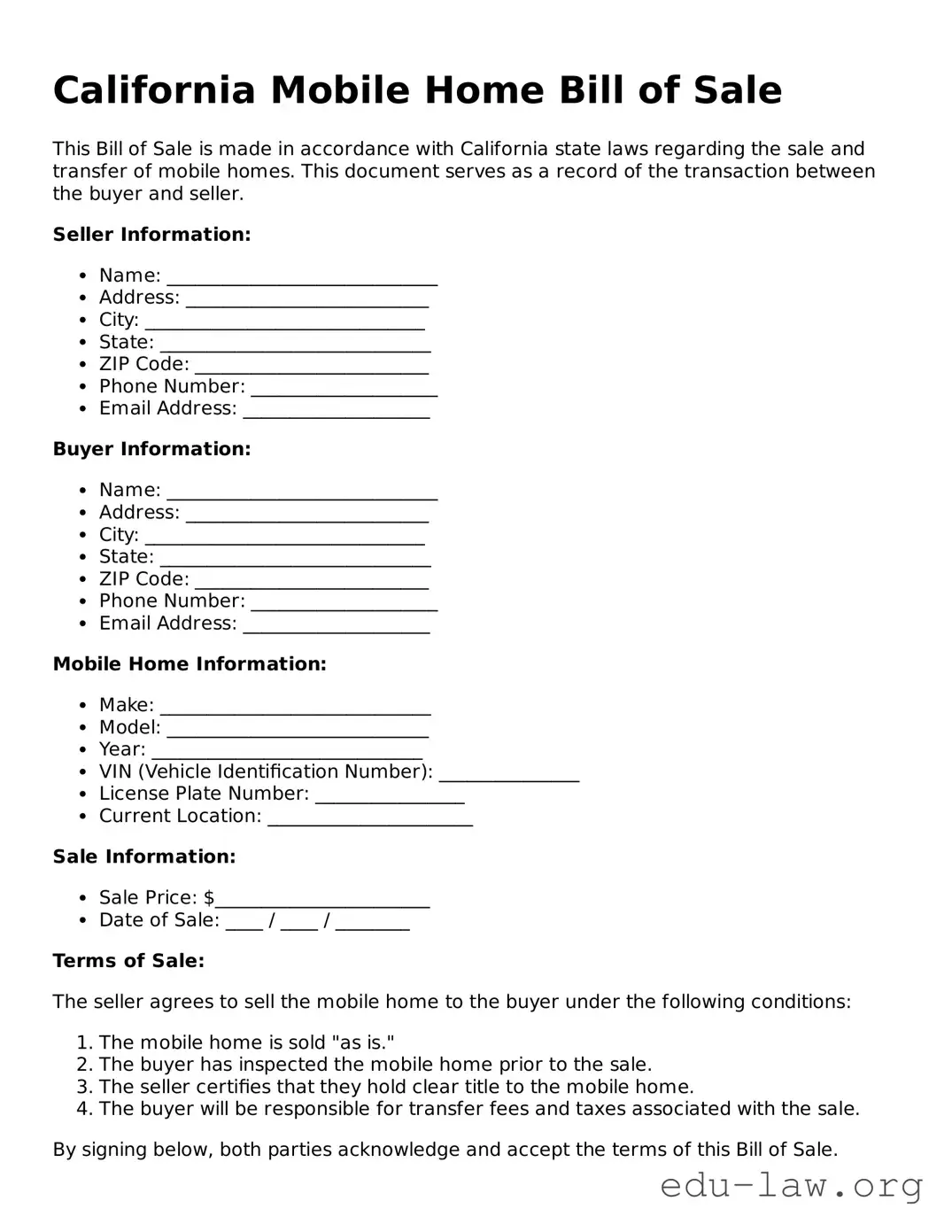What is a Mobile Home Bill of Sale in California?
A Mobile Home Bill of Sale is a legal document that transfers ownership of a mobile home from one party to another in California. This form outlines the details of the transaction, including the buyer and seller's names, the mobile home's description, the purchase price, and the date of the sale. It serves as proof that the buyer has acquired the mobile home and that the seller has relinquished ownership.
What information is required to complete the Bill of Sale?
To complete a Mobile Home Bill of Sale, you need several key pieces of information. This includes the full names and addresses of both the seller and the buyer, the mobile home's identification number (often referred to as the VIN), the model year, make, and any relevant documents such as title certificates. Additionally, you should include the sale price and the date of the transaction. Gathering this information ensures that the sale is documented accurately and helps facilitate a smooth transfer of ownership.
Why is a Bill of Sale important when buying or selling a mobile home?
The Bill of Sale is crucial for both the seller and buyer. For the seller, it confirms that they have officially transferred ownership and is evidence of the sale should any disputes arise in the future. For the buyer, it acts as proof of their new ownership; it’s essential for registering the mobile home with the Department of Housing and Community Development. Without this document, buyers may face challenges when attempting to establish ownership or resale the property later.
Is notarization required for the Mobile Home Bill of Sale?
In California, notarization of the Mobile Home Bill of Sale is not required, but it is strongly recommended. Having the document notarized adds an extra layer of authenticity, which can be beneficial in the event of disputes. It also provides a public record of the agreement and confirms that both parties signed willingly. This step can ultimately strengthen the buyer's position in any future legal matters.
Can a Mobile Home Bill of Sale be used for transactions involving manufactured homes?
Yes, the Mobile Home Bill of Sale can be used for transactions involving manufactured homes, as the term "mobile home" in California often encompasses both mobile and manufactured homes. The same principles of documenting the sale apply to both types of homes. However, always ensure that you check local regulations since there may be additional requirements depending on the type of manufactured housing being sold.
What should I do after completing the Bill of Sale?
After completing the Mobile Home Bill of Sale, both the buyer and seller should retain copies for their records. The seller should also provide the buyer with any necessary documentation, such as the mobile home title, so that the buyer can register the property. It is wise for the buyer to contact the local Department of Housing and Community Development to ensure that all ownership transfer processes are correctly followed. By taking these steps, both parties can protect their interests and ensure a successful transfer of ownership.
